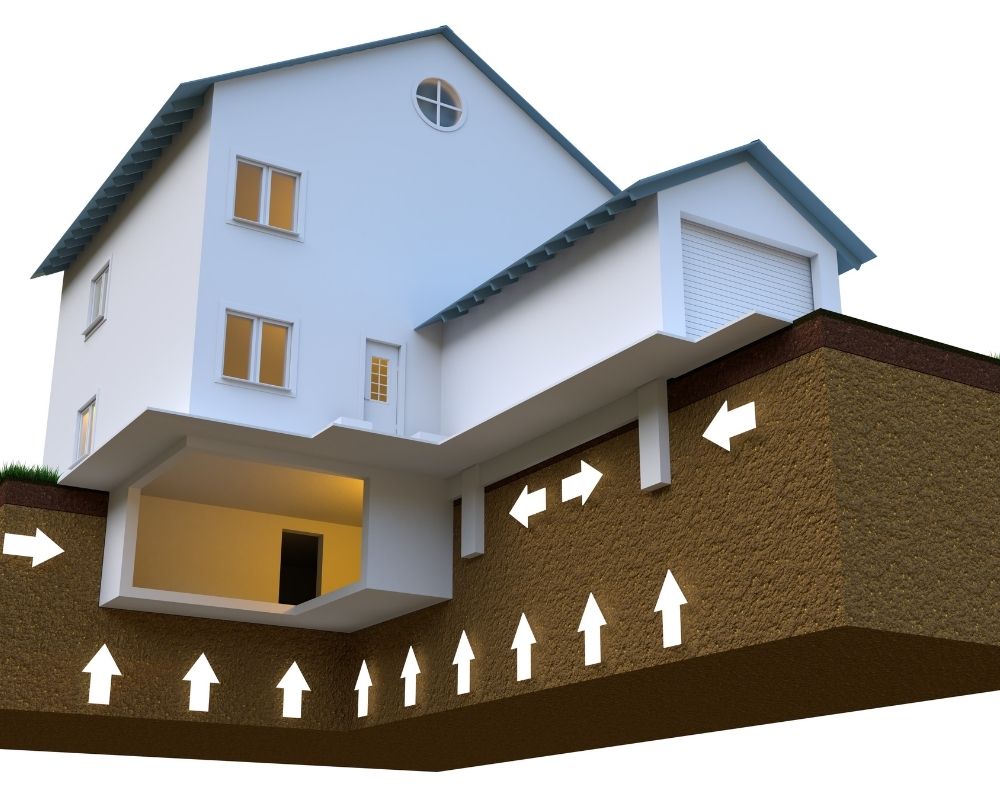You may have heard that expansive soil affects your foundation in Kansas City but wonder what that means. Does it refer to expanding soil, and how is that different from regular soil.
The most important thing that people need to know about expansive soil is that it can affect your home’s foundation. Although these effects are potentially bothersome, there are solutions available. We’ll take a look at what expansive soil is and how it may impact your foundation.
What is Expansive Soil Anyway?
Some of the other names for expansive soil are heavable soil or expansive clay. The most important thing to know about this type of soil, regardless is that it has a mostly clay base. Although you cannot tell what type of soil you have by appearance alone, there is an easy way to find out.
Digging up a small amount of dirt is how you find out. See if you can shape the soil like clay after adding water. When the soil is pliable, you have expansive soil. Non-pliable soil is granular, which erodes more than expansive soil.
How Expansive Soil Affects Your Foundation in Kansas City
Water moves through granular soil easily because of increased separation when wet. However, clay-based soil absorbs more water. The absorbency of this soil is easy to compare to a sponge. However, because water must penetrate all the clay’s layers, this is a long process. Because this process is lengthy, the effects are more likely to be severe.
How Expansive Soil Causes Pressure
Soil expansion is outward, allowing it to push against your home’s foundation. Because concrete is not designed for flexibility, it often cracks under pressure. These cracks make it easier for water to get into your foundation.
How Drying Expansive Soil Shrinks
When expansive soil begins to dry, it shrinks instead of expanding. The ground may start to pull away from the foundation once the soil has dried. If the area around or under the home has little soil, there is less foundation support. Uneven settling or sinking can make your foundation less stable.
How You Can Safeguard Your Home Against Expansive Soil
Even though expansive soil affects your foundation in Kansas City, there are some things you can do to minimize its effects. If the ground surrounding your home has a proper grade, keep rainwater from accumulating in the yard. Your gutters should also be properly installed and kept clear to avoid clogs that cause water to pool. If your downspouts drain a minimum of ten feet from your foundation, you’ll have fewer problems with water pooling in your yard.
Watering your soil may prove helpful if the area is experiencing a drought or if your soil usually stays dry. You’ll need to be careful about how you do your watering to ensure that it is done right. The soil needs to stay in place, but you don’t want to overwater the soil, either. Forced expansion is never good for your foundation’s health. The right balance will help everything stay in place.
What Are Your Options When Expansive Soil Affects Your Foundation in Kansas City?
When coping with foundation problems, there are different options depending on the soil’s behavior. Some cracks are easy to fill, while some foundation issues due to uneven settling may require pier installation. The assistance of a professional is essential to make sure you receive the right type of solution for the problem.
If you’ve noticed possible problems with your foundation, having things resolved sooner, rather than later, will save you a lot of time and expense. Even though expansive soil affects your foundation in Kansas City, you can get the help that you seek by contacting us.

